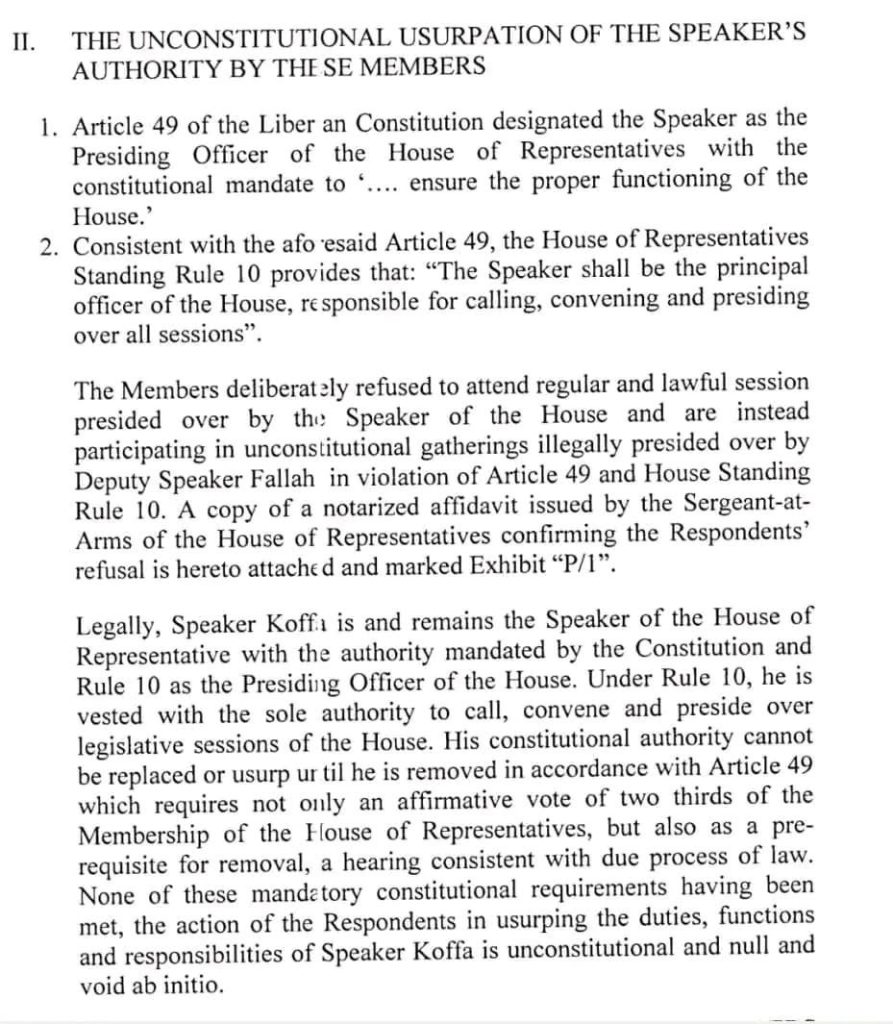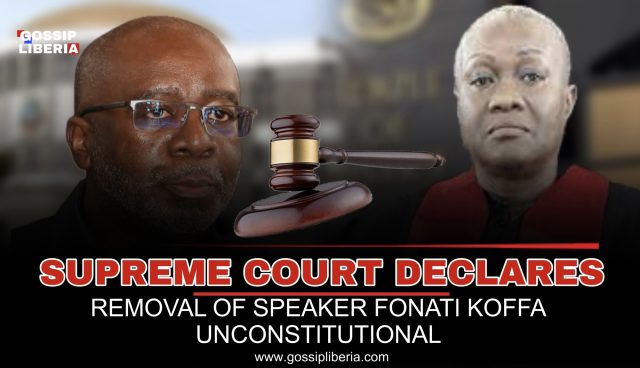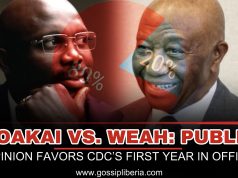Top Court Upholds Constitutional Integrity, Rebukes Legislative Missteps
The Supreme Court of Liberia has delivered a landmark ruling, declaring the removal of Speaker Fonati Koffa by the House of Representatives’ majority bloc unconstitutional. In its comprehensive opinion issued on December 6, the Court invalidated the speakership of Cllr. Samuel Koon and emphasized the necessity of adhering to constitutional guidelines and legislative rules.
Key Rulings and Implications
The Supreme Court’s decision centered on multiple breaches of the Liberian Constitution and House Standing Rules, setting critical precedents for legislative governance.
Restoration of Koffa as Speaker
In its ruling, the Court reinstated Speaker Fonati Koffa, citing a lack of due process and the absence of a two-thirds majority vote required under Article 49 of the Constitution. This article mandates that the Speaker, as the presiding officer, ensures the smooth functioning of the House and cannot be removed arbitrarily.
Unconstitutional Suspension of Lawmakers
The suspension of Representatives Edward Flomo, Abu Kamara, and Marvin Cole was also declared illegal. The Court highlighted that the decision violated Article 20, which guarantees due process and equal protection under the law.
Nullification of Committee Restructuring
In another blow to the majority bloc, the Supreme Court voided the restructuring of statutory committees, declaring these changes a breach of the Speaker’s constitutional authority as outlined in the House Standing Rules.
Judicial Rebuke to Unconstitutional Practices
The Court strongly criticized the actions of dissenting lawmakers, including Deputy Speaker Thomas Fallah, for convening what it termed “unconstitutional gatherings.” The justices underscored the importance of upholding the rule of law and protecting institutional integrity.
“The Constitution is clear in its provisions,” the ruling stated. “All members of the Legislature are bound by its terms to preserve order and legality in their proceedings.”
Broader Implications
This decision reinforces the judiciary’s role as the guardian of Liberia’s democratic framework. It also serves as a cautionary tale for lawmakers to respect constitutional processes in their political maneuvering.













